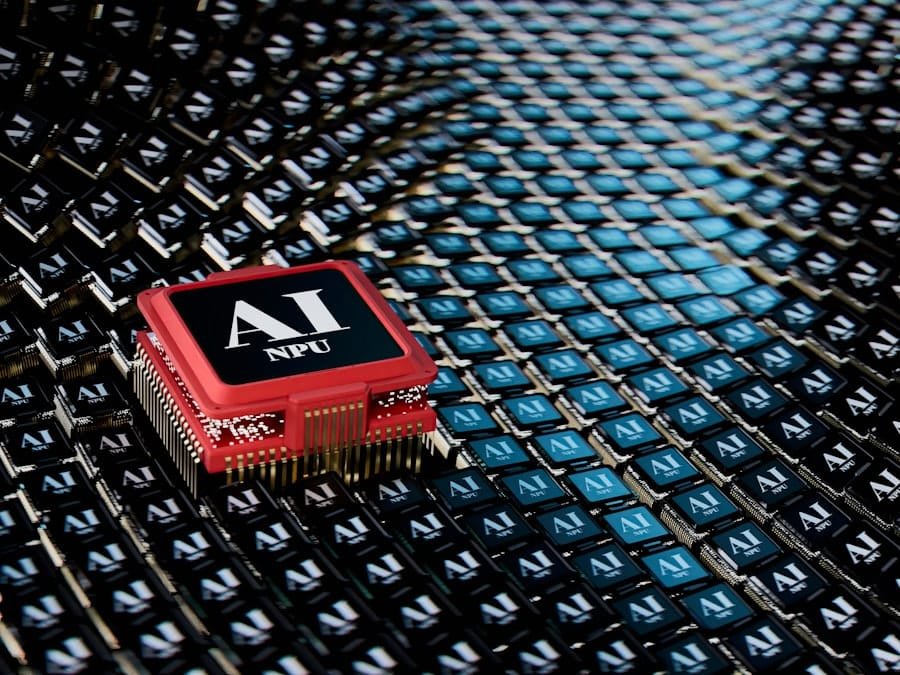Quantum hardware represents a revolutionary leap in computational technology, harnessing the principles of quantum mechanics to process information in ways that classical computers cannot. At its core, quantum hardware utilises quantum bits, or qubits, which can exist in multiple states simultaneously due to the phenomenon known as superposition. This characteristic allows quantum computers to perform complex calculations at unprecedented speeds, making them particularly suited for tasks such as cryptography, optimisation problems, and simulations of quantum systems.
The development of quantum hardware is not merely an academic pursuit; it has the potential to transform industries ranging from pharmaceuticals to finance by enabling solutions that were previously thought to be unattainable. The journey towards practical quantum hardware began in the late 20th century, with theoretical foundations laid by physicists such as Richard Feynman and David Deutsch. Their work highlighted the limitations of classical computing when it comes to simulating quantum systems, thus paving the way for the exploration of quantum computing.
As researchers began to experiment with various physical implementations of qubits—ranging from superconducting circuits to trapped ions—the field gained momentum. Today, the quest for scalable and reliable quantum hardware is at the forefront of technological innovation, attracting significant investment from both the public and private sectors.
Summary
- Quantum hardware refers to the physical devices and components used to manipulate and measure quantum information.
- Current quantum hardware is limited by factors such as noise, error rates, and scalability, which hinder its practical applications.
- Advancements in quantum hardware, such as error correction techniques and improved qubit coherence, are addressing current limitations and driving progress in the industry.
- The impact of quantum hardware advancements on industries such as finance, healthcare, and cybersecurity is expected to be significant, with the potential for improved simulations, drug discovery, and encryption.
- Future trends in quantum hardware include the development of more stable and scalable qubits, as well as the integration of quantum and classical computing systems.
Current State of Quantum Hardware
As of 2023, the landscape of quantum hardware is characterised by a diverse array of technologies and approaches. Superconducting qubits, pioneered by companies like IBM and Google, have emerged as one of the leading platforms for building quantum processors. These qubits operate at extremely low temperatures and leverage superconducting materials to achieve coherence times that allow for meaningful computation.
Google’s Sycamore processor, for instance, famously demonstrated quantum supremacy in 2019 by performing a specific task faster than the most advanced classical supercomputers could manage. Another prominent approach involves trapped ion technology, where individual ions are manipulated using lasers to perform quantum operations. Companies such as IonQ and Honeywell have made significant strides in this area, showcasing systems that boast high fidelity and long coherence times.
Additionally, photonic quantum computing is gaining traction, utilising light particles (photons) to represent qubits. This method offers advantages in terms of scalability and integration with existing optical technologies. The current state of quantum hardware is thus marked by a competitive race among various technologies, each with its unique strengths and challenges.
Challenges and Limitations in Quantum Hardware

Despite the promising advancements in quantum hardware, several challenges persist that hinder its widespread adoption and practical application. One of the most significant issues is decoherence, which refers to the loss of quantum information due to interactions with the environment. Qubits are notoriously sensitive to external disturbances, and maintaining their coherence long enough to perform complex calculations remains a formidable task.
Researchers are actively exploring error correction techniques and more robust qubit designs to mitigate these effects, but achieving fault-tolerant quantum computation is still a distant goal. Another challenge lies in the scalability of quantum systems. While small-scale quantum processors have demonstrated impressive capabilities, scaling these systems to hundreds or thousands of qubits presents substantial engineering hurdles.
The interconnectivity between qubits must be carefully managed to ensure that operations can be performed efficiently without introducing excessive noise or errors. Furthermore, the physical infrastructure required for maintaining qubit states—such as cryogenic cooling systems for superconducting qubits—adds complexity and cost to the development process. As a result, while progress is being made, the path towards practical, large-scale quantum hardware remains fraught with obstacles.
Advancements in Quantum Hardware
In recent years, significant advancements have been made in both the theoretical understanding and practical implementation of quantum hardware. One notable development is the emergence of hybrid quantum-classical algorithms that leverage both types of computing to solve complex problems more efficiently. For instance, variational quantum eigensolvers (VQE) combine classical optimisation techniques with quantum computations to find ground state energies of molecules, demonstrating how quantum hardware can complement existing technologies.
Moreover, advancements in materials science have led to the discovery of new superconducting materials that exhibit improved properties for qubit fabrication. Researchers are exploring topological qubits, which promise greater resistance to decoherence due to their unique topological properties. These innovations could pave the way for more stable and reliable qubit designs that are less susceptible to environmental noise.
Additionally, companies are investing heavily in developing software ecosystems that facilitate programming and interfacing with quantum hardware, making it more accessible for researchers and developers alike.
Impact of Quantum Hardware Advancements on Industry
The advancements in quantum hardware are poised to have profound implications across various industries. In finance, for example, quantum algorithms could revolutionise risk analysis and portfolio optimisation by processing vast amounts of data far more efficiently than classical methods. Investment firms are already exploring how quantum computing can enhance algorithmic trading strategies and improve fraud detection mechanisms.
In pharmaceuticals, the ability to simulate molecular interactions at a quantum level could drastically reduce the time and cost associated with drug discovery. Quantum computers can model complex biological systems more accurately than classical computers, enabling researchers to identify potential drug candidates more quickly. Companies like D-Wave are collaborating with pharmaceutical giants to explore these possibilities, highlighting the tangible benefits that advancements in quantum hardware can bring to real-world applications.
Future Trends in Quantum Hardware

Looking ahead, several trends are likely to shape the future of quantum hardware development. One prominent trend is the increasing focus on hybrid computing architectures that integrate classical and quantum systems seamlessly. This approach allows businesses to leverage existing classical infrastructure while gradually incorporating quantum capabilities as they become available.
Such hybrid models could facilitate a smoother transition into a future where quantum computing plays a central role in computational tasks. Another trend is the growing emphasis on standardisation within the quantum hardware ecosystem. As various companies develop their proprietary technologies, there is a pressing need for common frameworks and protocols that enable interoperability between different systems.
Standardisation could accelerate collaboration among researchers and developers while fostering innovation across the industry. Furthermore, as more educational institutions incorporate quantum computing into their curricula, a new generation of skilled professionals will emerge, driving further advancements in this exciting field.
Potential Applications of Quantum Hardware
The potential applications of quantum hardware extend far beyond finance and pharmaceuticals; they encompass a wide range of fields including logistics, artificial intelligence, and materials science. In logistics, for instance, quantum algorithms can optimise supply chain management by analysing numerous variables simultaneously—something classical computers struggle with due to combinatorial complexity. Companies like Volkswagen are already experimenting with quantum computing to enhance traffic flow management in urban environments.
In artificial intelligence (AI), quantum computing could significantly improve machine learning algorithms by enabling faster data processing and more sophisticated models. Quantum neural networks are an area of active research that seeks to harness the unique properties of qubits to enhance learning capabilities beyond what is currently achievable with classical neural networks. This intersection between AI and quantum computing holds immense promise for developing smarter systems capable of tackling complex problems across various domains.
Conclusion and Outlook for the Quantum Hardware Industry
The outlook for the quantum hardware industry is one of optimism tempered by realism; while significant challenges remain, the pace of innovation continues to accelerate. As researchers push the boundaries of what is possible with qubits and explore new materials and architectures, we can expect breakthroughs that will bring us closer to practical quantum computing solutions. The collaborative efforts between academia and industry will play a crucial role in overcoming existing limitations and unlocking new applications.
Investment in quantum technology is likely to grow as businesses recognise its transformative potential across sectors. As we move forward into an era where quantum hardware becomes increasingly integrated into our technological landscape, it will be essential for stakeholders to remain adaptable and open-minded about the possibilities that lie ahead. The journey towards fully realising the potential of quantum hardware is just beginning, but its implications promise to reshape our understanding of computation itself.
Advancements in Quantum Hardware: What’s Next for the Industry explores the latest developments in quantum technology and its potential impact on various industries. For a related article on a different topic, you can read about the cost of decluttering a house here. This article delves into the financial implications of decluttering and the benefits it can bring to homeowners.
FAQs
What is quantum hardware?
Quantum hardware refers to the physical components and devices that are used to manipulate and measure quantum information. This includes quantum processors, quantum memory, and other quantum computing components.
What are the recent advancements in quantum hardware?
Recent advancements in quantum hardware include the development of more stable and reliable qubits, improved error correction techniques, and the creation of larger and more powerful quantum processors. Additionally, there have been advancements in quantum networking and quantum sensing technologies.
What is the current state of the quantum hardware industry?
The quantum hardware industry is rapidly evolving, with significant investments from both public and private sectors. Major technology companies, as well as startups, are actively working on developing and commercializing quantum hardware for various applications.
What are the potential future applications of quantum hardware?
Quantum hardware has the potential to revolutionize various industries, including cryptography, drug discovery, materials science, and optimization problems. Quantum hardware could also lead to advancements in artificial intelligence and machine learning.
What are the challenges facing the quantum hardware industry?
Challenges facing the quantum hardware industry include the need for better qubit stability, improved error correction techniques, and the development of scalable quantum processors. Additionally, there are challenges related to manufacturing and scaling up quantum hardware for practical use.
